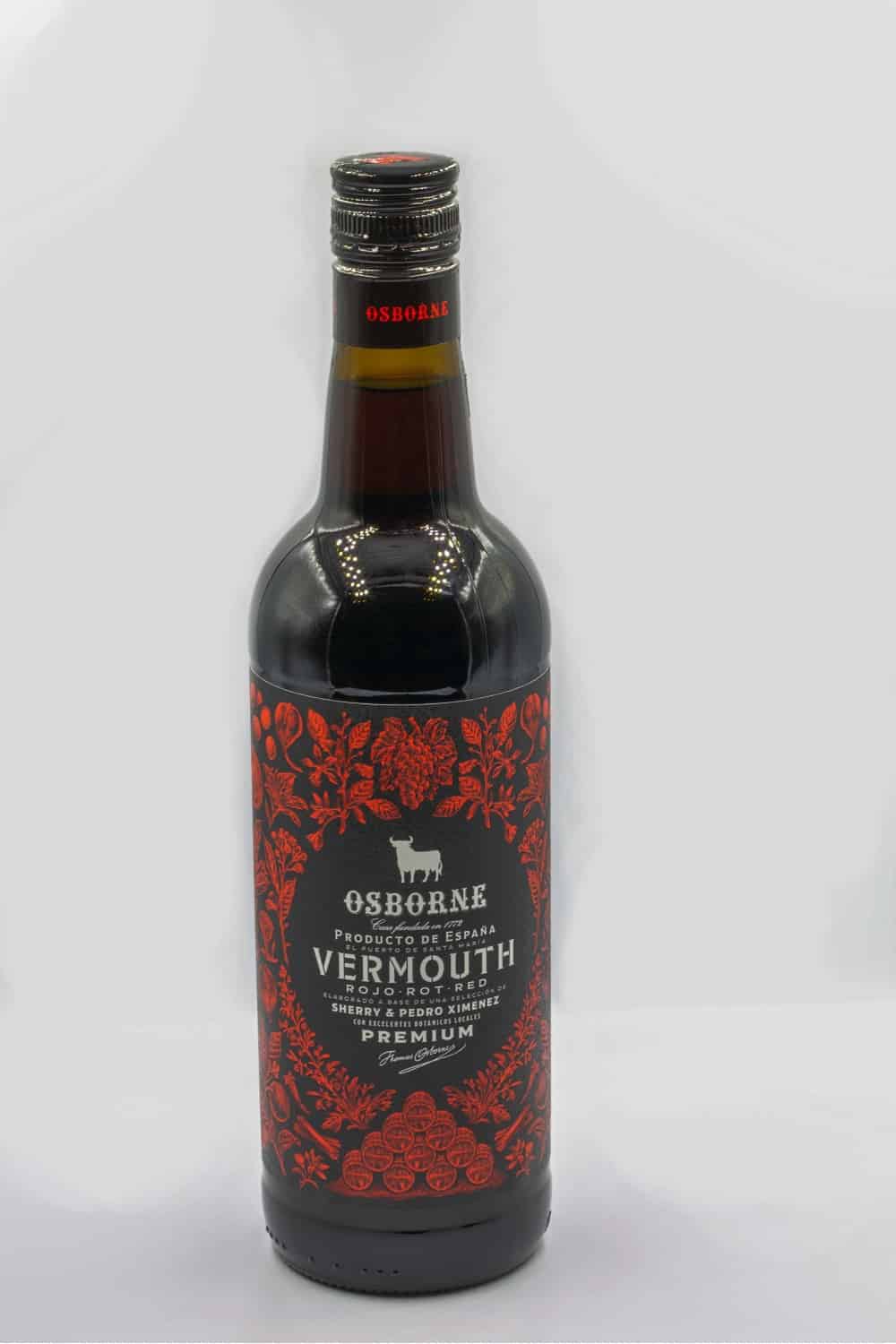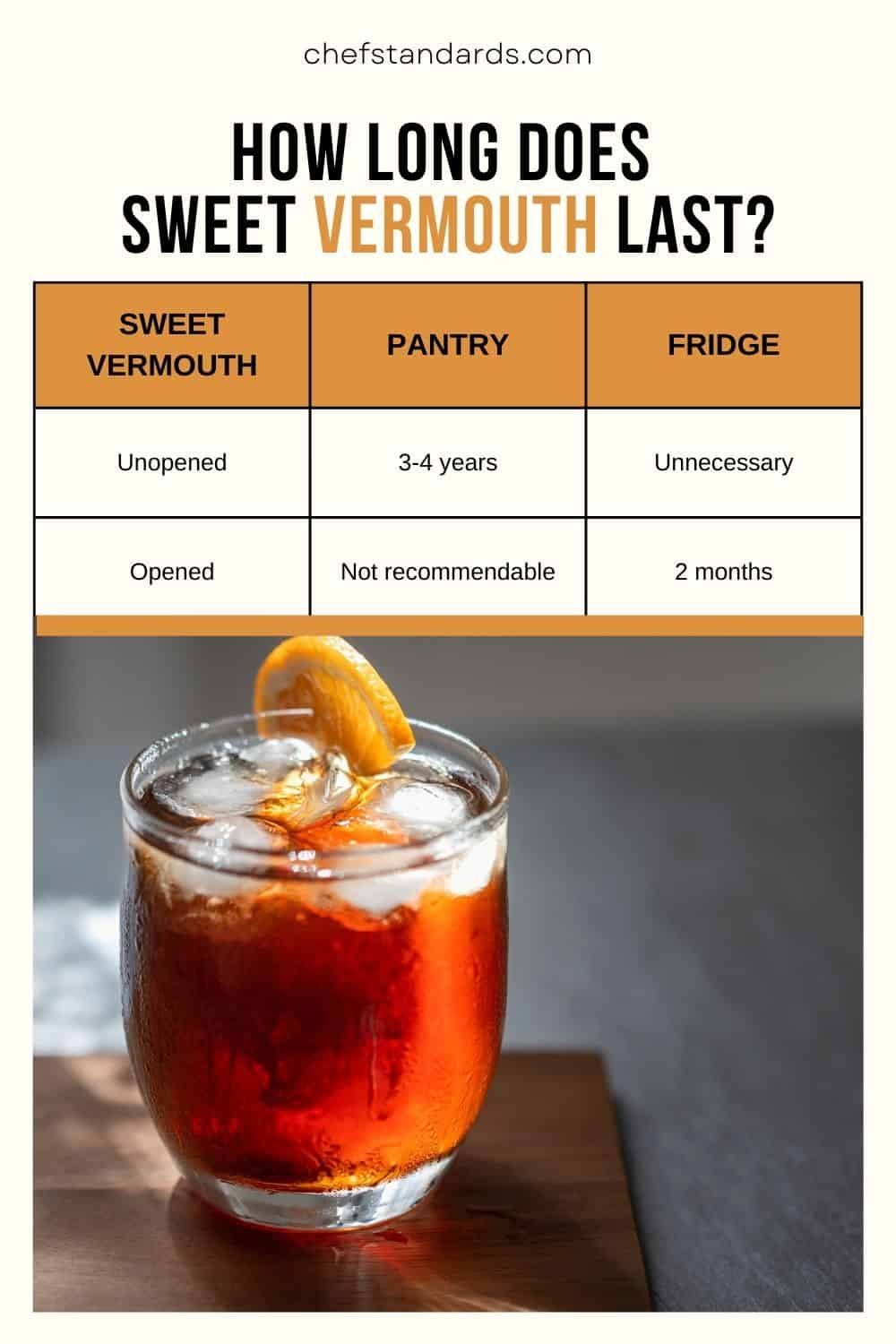It’s the main star of your Negroni and it can enrich other popular cocktails with its unique and complex flavor.
Vermouth is a fortified wine enriched with various types of botanicals. It has a long history since it originates back to ancient Greece.
Back in those days, vermouth was mainly used for medicinal purposes. Nowadays, however, there are two main types of vermouth, sweet and dry vermouth, and both can be enjoyed as aperitifs, in cocktails, or be used in cooking.
Since it is so flavorful and versatile, you don’t want it to end up in the trash. So, the main question is “Does vermouth go bad?”.
Since it is an alcoholic drink, vermouth won’t go bad in the way that it will make you sick, but its quality can certainly deteriorate.
If you want to know more about this interesting topic, it is best that you continue reading.
Does Vermouth Go Bad?

As you already know, vermouth is an alcoholic beverage and alcoholic beverages do not spoil easily. If you are a wine lover, you know that the taste of wine gets even better over time, of course, if stored the right way.
Vermouth is not a wine, so it won’t get better over time. But, it is a fortified wine that contains fairly enough alcohol to protect it from going bad for quite a long time.
Namely, the alcohol content is able to destroy those harmful bacteria and prevent mold from growing.
Only the very contaminated bottle, in which vermouth is stored, can make those microorganisms stay alive to some extent. But, that is really highly unlikely.
However, the deterioration in quality, mainly in terms of flavor and aroma, is the real threat to the vermouth.
The biggest threat is the oxidation process caused by oxygen from the air if the vermouth is left open for a long period of time.
Also, vermouth doesn’t like high temperatures. So, if you leave it at a high temperature for a long time, its quality will deteriorate greatly.
I am sure that you understand by now that vermouth can go bad in terms of quality and that the biggest factor is storage conditions.
So, let’s look at some storage tips you need to follow in order to preserve the quality of your vermouth for longer.
How To Store Vermouth

It is alcohol, yes. And alcoholic beverages tend to have a very long shelf life. But that doesn’t mean that you can leave them wherever you want and store them however you want.
The same goes for vermouth. No matter if it is dry or sweet, vermouth doesn’t like unclean surfaces, air, as well as too high or too low temperatures.
These facts lead us to very simple conclusions.
If, for some reason, you didn’t buy the bottle of vermouth from the grocery store, but poured it into one of your bottles, or if you just transferred it to another bottle, make sure that the bottle is entirely clean.
Since vermouth doesn’t like air due to the oxidation process that can lower its quality, it is obvious that the bottle of vermouth needs to be sealed tightly.
If you are sure that it is sealed tightly, you need to make sure that the bottle of vermouth is stored in a cool, dark place.
You must make sure that it is stored away from any source of heat, like an oven for example, and that the bottle is not exposed to direct sunlight.
If the vermouth is exposed to heat for a long time, the oxidation process will occur causing your vermouth’s flavors and aromas to taste “off”.
Can You Freeze Vermouth To Extend Its Shelf Life?
As I already said in the introduction of this part that explains storage tips for vermouth, just like it doesn’t love high temperatures, vermouth is not a fan of very low temperatures either.
Considering this fact, it is not difficult to conclude that it is not recommended to freeze vermouth.
But, why can’t vermouth be frozen? Well, unlike some other beverages with a high alcohol content, like for example gin or vodka, vermouth won’t be able to withstand freezing and it will certainly harden at low temperatures.
Also, the wine inside the vermouth will expand at very low temperatures, increasing the possibilities of the bottle to break. That won’t just do material damage, but can also be very dangerous to people’s safety.
So, all in all, do not freeze vermouth if you don’t want to destroy it.
Does Vermouth Need To Be Refrigerated?
Well, if vermouth doesn’t like low temperatures, the real question is whether it likes to be refrigerated.
The temperature in a fridge is low, indeed. But, it is only slightly under 40 degrees F, so it won’t do any damage to your vermouth if stored there for a short period of time.
However, if the bottle of vermouth is still unopened, it is really not necessary to put it in the fridge.
On the other hand, if it has been opened, you should transfer it to the fridge if you want to preserve its quality for longer.
Of course, you will have to seal it properly before putting it in the fridge, just like it is the case when storing vermouth in the pantry. But, that really isn’t a hard task.
A sweet and dry vermouth won’t last the same in the fridge though, but more about that below.
One more note before we head to the shelf life of vermouth. Some people also tend to transfer vermouth into smaller bottles with less headspace to protect it from air and the potential oxidation process.
Aside from that, since vermouth is actually a fortified wine, you can also use a wine preservation system that removes oxygen. That will extends its shelf life.
Vermouth Shelf Life
Finally, it is time to find out how long vermouth stays good in different conditions. Below, you will learn more about the shelf life of both sweet and dry vermouth in the pantry and in the fridge.
How Long Does Sweet Vermouth Last?
As I already emphasized, alcoholic beverages can last and preserve their quality for quite a long time. Sweet vermouth is no exception.
If stored properly in a cool, dark place, sweet vermouth in a clean unopened bottle will last for up to 3-4 years.
Although that is not the shelf life of some full-bodied wines or hard liqueurs, it is a quite decent one.
If there is a best-by date on the bottle’s label, take note that the sweet vermouth will probably last for about 2-3 years past that date if unopened and stored properly.
However, once you open the bottle, all of this is in vain. You have to refrigerate the properly sealed bottle of sweet vermouth and it will stay good in the fridge for up to 2 months.
It won’t make you sick if you leave it in the fridge for longer and then consume it, but it probably will ruin your cocktail, so take that into consideration.

How Long Does Dry Vermouth Last?
There is not much of a difference with dry vermouth when it comes to unopened bottles.
Just like with its sweet cousin, unopened dry vermouth will also stay good for about 3-4 years, of course, if you store it in line with the storage rules explained above.
And you can add an extra 2 or 3 years if there is a best-by date on the label.
An opened bottle of vermouth is a different story. You see, both sweet and dry vermouth have alcohol which protects them from those nasty bacteria.
However, unlike sweet vermouth, the dry version doesn’t have that much sugar and sugar also acts as a preservative giving the product more time to survive.
Because of this fact, when you store an opened bottle of dry vermouth in the fridge, it will last half as long as sweet vermouth, i.e. up to 1 month.
Again, this goes for the quality shelf life of vermouth because it can not go bad in the way of making you sick.
| DRY VERMOUTH | PANTRY | FRIDGE |
| Unopened | 3-4 years | Unnecessary |
| Opened | Not recommendable | 1 month |
How To Recognize Bad Vermouth?

It is not always easy to recognize when an alcoholic beverage is not suitable for consumption anymore because it doesn’t go bad in a true way. Only its quality deteriorates.
But, if you don’t want to experience an awful taste and aroma of your vermouth and also don’t want to ruin your cocktail, here are some things you need to look out for.
• Different Aroma: A good-quality vermouth usually has a pronounced herbal aroma. However, when it deteriorates, it may take on a musty or off aroma that is less pronounced.
That usually happens because the botanicals break down due to the oxidation process caused by excess air, heat, or light.
• Discoloration: Again, if the oxidation process in the vermouth occurs, it will change its color and your vermouth will appear darker or duller in color than usual.
• Cloudy Texture: Due to the presence of impurities or residual materials, your vermouth may take on a cloudy appearance. In most cases, this is the consequence of improper filtration or clarification and the vermouth is not suitable for consumption.
• Off Flavors: Finally, if you don’t notice any of these signs, you can slip a drop of vermouth into your mouth and see what vermouth tastes like. If it has a recognizable complex flavor, it is good.
On the other hand, if it has a sour or musty taste, it is probably not good for consumption anymore.
Can Old Vermouth Make You Sick?
As already stated previously in the text, vermouth contains alcohol and sugar, and both of these act as preservatives that protect your drink from microorganisms.
So, if your vermouth is stored in good storage condition in an unopened bottle for up to 3-4 years, it will stay good and preserve its best quality.
Even if it stays there for longer than that time frame, it won’t spoil in the way that can make you sick, but it will be very unpleasant for drinking and general consumption.
Namely, although the bottle is sealed, there is still trapped air in it and the oxidation process is just slowed down, but not stopped entirely.
So, it is estimated that after those 3-4 years, the oxidation process becomes harmful to the botanicals inside, causing them to break down, ruining the flavor and aroma of your vermouth.
Final Verdict On Vermouth Spoilage Discussion
So, as you were able to conclude from the information above, the answer to the question “Does vermouth go bad?” is, at the same time, positive and negative.
Because of the alcohol content, vermouth doesn’t spoil in the way that it can make you sick since alcohol is always there to destroy those unwanted microorganisms.
However, it can certainly go bad in terms of quality due to the oxidation process that tends to break down the botanicals in the vermouth and make its flavor and aroma unpleasant.

